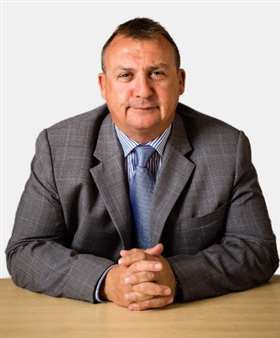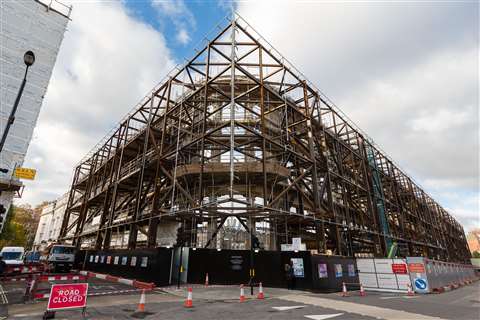Demolition and Coronavirus: what next after Covid-19?
16 July 2020
Steve Ducker (Editor, Demolition & Recycling International and webinar moderator)
How has Coronavirus affected your business?

David Darsey (Managing Director, Demolition Division, Erith Group)
We have had to adapt, starting with dialogue with clients and internally.
The biggest challenge is we do a lot of work in central London and avoiding public transport, getting workers to and from the sites has not been easy.
With the 2 m (6 ft 6 in) distancing, additional welfare, even staggering start times and finish times, there has been a lot of change but we are back to around 90% of our output before the pandemic.
Steve
How have companies adapted to virtual training?
David
If I can answer that wearing both my Erith and National Demolition Training Group hats, we have had to adapt and deliver virtual training. It took between a month and six weeks to get the programmes written, and “virtual friendly”.
But there has been a good success rate and a good take up.
I think masses of people in classrooms is a thing of the past.
Steve
What has been your experience with social distancing?
David

This morning I put my hand out to shake somebody’s hand.
These are lifelong habits that we must change. One-way routes, washing of hands, sanitising your desk station, sanitising your work areas.
Gatemen and logistics staff they tend to start off 2 m apart at eight o’clock, by 10 o’clock they might be 1 m (3 ft 3 in) apart.
It is like when it became compulsory to wear a seat belt in a car. Now it’s automatic, but at first I always forgot. We are reinventing the wheel.
Steve
Can you say when we can expect demolition and construction to get back to some sort of a normal position?
David
Coronavirus is not going away any time soon. I think we are on what experts call a downward curve, but there are still a lot of deaths in Europe and around the world.
I think the worst is behind us but there will be more to come in terms of adapting how we live and go to work.
Steve
What has the financial impact of Coronavirus been? Is the likely economic contraction going to create a tightening of the demolition market in terms of cost, or a greater focus on quality safety and health, with the acceptance of potentially higher costs?
David
Projects are suffering additional costs to cater for the new norm, I think somebody said.
On one of our projects, with 80 operatives on site, we have had to spend about £90,000 ($110,000) to get welfare, additional cabins, two permanent cleaners, staggering shifts. There is a cost to it for us to keep that site going.
On average we return 20 bids a week, and they range from £50,000 ($62,500) to say £10 million ($12.5 million). Last week [ending May 29] we returned four.
Although we are busy on site now, large jobs will not start until September or later. In the final quarter and next year I think there is a genuine catch up where we have stood still in terms of new opportunities for two or three months and then you’re going into the winter and shorter days.
Steve
How have your capital expenditure plans changed since the virus?
David
We have a rolling programme of plant replacement, which we are maintaining. However, we can put the brakes on that at six-month intervals and it has now become an agenda item at every board meeting.
In terms of staff this has given us an opportunity to take stock. If you have got a business that is at 85 to 90% capacity but the overhead is at 100% something has got to give.
Steve
How have businesses sought to innovate to reduce manpower on site and speed up project delivery times at the same time?
David
A lot of our demolition is done remotely by machines anyway. What has been difficult has been adapting the methodology for the people on the workface who are driving the piles, having to unhook the chains and the welding and where there’s a scurry of work activity going on in a very small area, the same as putting façade retention systems up.
But other than that, everybody is using remote control excavators and this has not been Covid-driven, it’s driven by health and safety, governance and all the good work that the manufacturers are doing.
Steve
What is the most important single message in your particular sector?
David
From a positive point of view, paramount is health, safety and well being of people who work for us and people who we come in contact with, and our families, but we are all in it together, as our government says. Good times will return.
- Interview based on the Demolition after Coronavirus webinar held online on June 3 featuring Francisco Cobo (President, European Demolition Association) and Martin Krupicka (President and CEO, Brokk Group). More coverage is in the June-July issue, or to download the full 55-minute video please visit the premium content section of www.khl.com
- The webinar sponsors were the National Federation of Demolition Contractors, Applied Science International, McCloskey International and Yantai Eddie. Our thanks to them all
- Thank you to all the audience members who took the time to join us online and those who submitted questions for the panel on the day.




